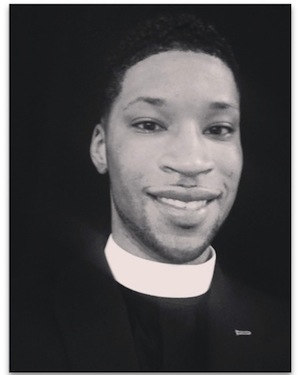
In our current context, is the Church missional – or missing? It’s a loaded question, isn’t it? A little too black and white, perhaps, considering the question that almost inevitably follows: What is the Church’s mission? That question, too, is almost designed for failure – or at least for absurdity – for as we know, there are as many answers as there are people in the world. And yet, they are the very questions that we as people of faith desperately need to be asking. In an age where there is no shortage of opinions on politics and terror; human rights and love; God and guilt; sin and saving grace – is the Church missional? Can the Church be missional? And if so, how? What parts of mission are currently being fulfilled? What parts are we missing? How do we fully engage these questions? Are we even ready to hear what the answers might reveal?
On the other hand, answers to the question ‘Is the Church missing?’ can be, perhaps, depressingly uniform. In the opening pages of his book The Underground Church: Reclaiming the Subversive Way of Jesus, Robin Meyers shares that the Church in the Western world is in bad shape, written off by nearly an entire generation as hypocritical and obsolete. I hear these sentiments that Meyers describes echoed more often than not.
___________________________________________
Put simply, from an outsider’s perspective, the Church’s mission can be summed up in one word: survival.
___________________________________________
Sadly, for many people and communities, these sentiments seem pretty well justified. Many people have come to our congregations only to experience us ‘being the Church’ in a way that is off-putting and delusional, void of authenticity. While senseless violence rings throughout the world, child abuse rises, marginalization increases, and innumerable injustices wreak their havoc, they look to us and see a Church that looks and feels increasingly irrelevant to their very real struggles. Put simply, from an outsider’s perspective, the Church’s mission can be summed up in one word: survival.
 So what has happened? We who read Scripture can hardly miss the missional mandate of Jesus. I think it’s incredibly important for us to remember that this mandate extends beyond the basic functions of our mainline denominational mission(s) departments. That is not to deny that feeding the homeless, sending funds to impoverished nations, educating people in things both religious and secular, etc., fall squarely within the scope of missions; it is to say that they are not the sum total. It is the missional mandate from our Savior Jesus Christ that has offered hope for the church in ages past and will offer it for years to come. And Robin Meyers’ words remind us that what we do today must be more than simply what we have done in ages past.
So what has happened? We who read Scripture can hardly miss the missional mandate of Jesus. I think it’s incredibly important for us to remember that this mandate extends beyond the basic functions of our mainline denominational mission(s) departments. That is not to deny that feeding the homeless, sending funds to impoverished nations, educating people in things both religious and secular, etc., fall squarely within the scope of missions; it is to say that they are not the sum total. It is the missional mandate from our Savior Jesus Christ that has offered hope for the church in ages past and will offer it for years to come. And Robin Meyers’ words remind us that what we do today must be more than simply what we have done in ages past.
In their book, The Missional Church in Perspective, Craig Van Gelder and Dwight J. Zscheile highlight six characteristics of what they call a ‘Missional Church’. These characteristics, they believe, lay the foundation for an open, sacred space where people and communities can honor their individual and collective truths. Their first characteristic speaks to the relationship between mission [work] and the Church’s itself. “We must”, they argue, “overcome the historical dichotomy of church and missions/mission by connecting ecclesiology and missiology” (p. 6). Similar to what Dawn DeVries said earlier in this issue, we cannot separate ‘the Church’ from ‘the Church’s mission’. The Church can no longer function in a way that does not connect all of the dots.
___________________________________________
We who read Scripture can hardly miss the missional mandate of Jesus.
___________________________________________
The second characteristic Van Gelder and Zscheile present is the idea of a Trinitarian missiology. “We must start with the Trinity in order to understand mission, for the Trinity introduces us to a sending God who is a missionary God” (p. 6). Our church must be led by the relational, sending spirit that dwells in the Trinity that we call God.
 Thirdly, we must frame our discussion of mission(s) in terms of the Missio Dei (the mission of God). Van Gelder and Zscheile remind us that mission belongs to God. It never was the Church’s mission, and it never will be. In their words, “…this conception of the mission of God reframes our understanding of mission from being church-centric to becoming theocentric” (p. 6).
Thirdly, we must frame our discussion of mission(s) in terms of the Missio Dei (the mission of God). Van Gelder and Zscheile remind us that mission belongs to God. It never was the Church’s mission, and it never will be. In their words, “…this conception of the mission of God reframes our understanding of mission from being church-centric to becoming theocentric” (p. 6).
This third characteristic lays the groundwork for the fourth. “The reign (kingdom) of God: The message of Jesus is centered on the reign of God, which must be understood as both already and not yet” (p. 7). God’s sovereignty is past, present, and future. Many of our modern-day ideologies and pop-culture theologies would have us believe that we are now in a context where we demand of God what God will do. This is not, and never has been, the case. Perhaps a return to the foundational monotheistic view that we worship the one God who is over all, in all, and through all will serve us better as we seek to realign ourselves with the work of the ‘now’ Church. This leads us to the fifth characteristic of the missional Church: the Church’s missionary nature. “God is a missionary God, and God’s mission involves a church sent into the world to represent the reign (kingdom) of God” (p. 7).
___________________________________________
Many of our pop-culture theologies would have us believe that we are now in a context where we demand of God what God will do. This is not, and never has been, the case.
___________________________________________
 Each of these characteristics build upon one another and bring us back, full circle, to Scripture, the place where we heard Jesus’ missional mandate in the first place. As such, the sixth characteristic of missional Church is a missional hermeneutic. “It is necessary,” Van Gelder and Zscheile write, “to use a missional hermeneutic to read Scripture in order to understand the full intent of God’s mission” (p. 7). It is imperative that our understandings and interpretations of our sacred texts also become part of the mission of God through Christ Jesus. Our Bible study and personal reading of Scripture then becomes a mission-thinking point of departure. We ask God to offer illumination and interpretation of the text in ways that point us to further mission, further advancement of the kingdom of God.
Each of these characteristics build upon one another and bring us back, full circle, to Scripture, the place where we heard Jesus’ missional mandate in the first place. As such, the sixth characteristic of missional Church is a missional hermeneutic. “It is necessary,” Van Gelder and Zscheile write, “to use a missional hermeneutic to read Scripture in order to understand the full intent of God’s mission” (p. 7). It is imperative that our understandings and interpretations of our sacred texts also become part of the mission of God through Christ Jesus. Our Bible study and personal reading of Scripture then becomes a mission-thinking point of departure. We ask God to offer illumination and interpretation of the text in ways that point us to further mission, further advancement of the kingdom of God.
So, coming back to Scripture with this missional hermeneutic, what does the One who is the Head of the Church say to his followers about mission? When I go to Scripture with this lens, I uncover a four-part missional mandate in the words of Jesus Christ as read in the Gospels and Acts. This four-part mandate is comprehensive, and it calls all of us to the carpet.
- Mission involves making disciples of all nations (Matthew 28:18-20). This speaks to the importance of inclusivity and equality. For women, children, LGBTQ communities, those of other faith traditions and non-traditions, and all persons living in the margins of society – in ways that honor the diversity of humanity and the dignity of each individual to be.
- Mission involves proclaiming—making known the gospel (Luke 24:46-49). In the words of the gospel music balladeers The Williams Brothers, “I’m just a nobody trying to tell everybody about somebody who can save anybody.” We are called to share the gospel: the story of how Christ was born and died for the salvation and reconciliation of the world back to God, how He rose from the dead and now sits on the right hand of God making intercession along with the Holy Spirit on our behalf.
- Mission involves being sent out (John 20:21). Jesus reminds us that He was a ‘sent one’. If He was sent to accomplish the mission of God, then aren’t we also?
- Mission involves being a physical witness of the Lord Jesus (Acts 1:8). The power we receive through the Holy Spirit should enliven us to be living testimonies and witnesses of God’s amazing grace in the world around us.
___________________________________________
I encourage everyone who calls the Church their home to find their place in the work of radical love, intentional inclusivity of marginalized communities, and consistent work for justice in our evolving contexts.
___________________________________________
 My own understanding of the mission of the church has evolved according to my experiences. I imagine yours has, too. Undoubtedly it will continue to grow and change. However, just as we are right now, I challenge each of us to respond to the call to be more intentionally missional in our approach to faith and relationships. I encourage everyone who calls the Church their home to find their place in the work of radical love, intentional inclusivity of marginalized communities, and consistent work for justice in our evolving contexts. Our mission must be like a wild fire: “It only takes a spark to get a fire going, and soon all those around can warm up in its glowing. That’s how it is with God’s Love, once you’ve experienced it; you spread the love to everyone. You want to pass it on.”
My own understanding of the mission of the church has evolved according to my experiences. I imagine yours has, too. Undoubtedly it will continue to grow and change. However, just as we are right now, I challenge each of us to respond to the call to be more intentionally missional in our approach to faith and relationships. I encourage everyone who calls the Church their home to find their place in the work of radical love, intentional inclusivity of marginalized communities, and consistent work for justice in our evolving contexts. Our mission must be like a wild fire: “It only takes a spark to get a fire going, and soon all those around can warm up in its glowing. That’s how it is with God’s Love, once you’ve experienced it; you spread the love to everyone. You want to pass it on.”
To return to the question I posed at the beginning, will the Church be missional or missing? It seems to me that it can only be one or the other.
Personally, I believe that we really do have the capacity to be missional. There are just a few pieces of the puzzle that still seem to be missing.
*****
AUTHOR BIO: Rev. E. Taylor Doctor, is a third generation preacher and scholar. He is a senior seminarian at the Johnson C. Smith Theological Seminary and also serves the National Black Justice Coalition (NBJC) through advocacy work. He resides in Atlanta, Georgia.
Read more articles in this issue: What Mission is This Anyway?





Unbound Social